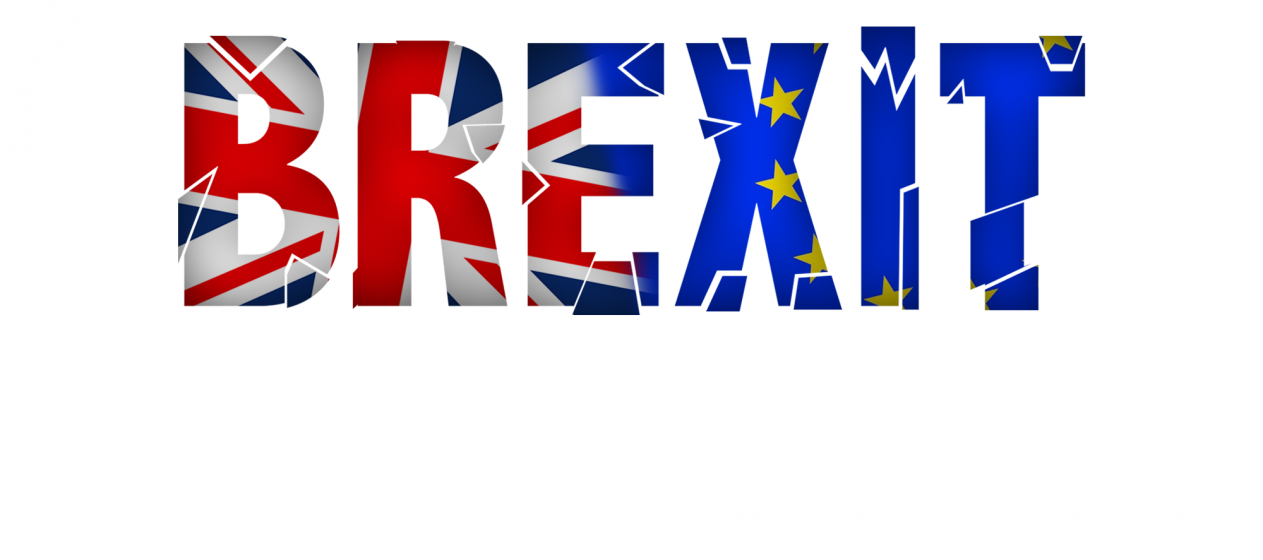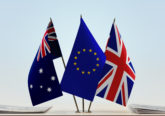Viewed from the perspective of the three main protagonists, Cameron, Gove and Johnson, Brexit has variously been presented as a Greek tragedy or a spat between Oxford alumni[1]. Certainly the latter, it has real elements of the former. But, in truth, the real tragedy is the further erosion of British democracy.
Prime Minister David Cameron reluctantly agreed to the inclusion of an in/out referendum in the 2015 Conservative election manifesto in order to appease the Eurosceptic right wing of the party.[2] Some commentators suggest that he never expected to have to deliver the referendum thinking that it would be vetoed by Liberal Democrats in coalition or else be voted down by the opposition[3]; certainly it was a referendum that he never expected to lose.
A European and a Unionist intent on unifying the Conservative Party, he has brought about Brexit, in all probability triggered Scottish independence and left the Conservative Party and the country divided as never before. No wonder, arguably Britain’s least successful Prime Minister, he resigned. Adding to that legacy, in resigning he walked away from the political, economic and social chaos that he had created; an act of breath-taking irresponsibility.
Perhaps Boris Johnson deserves more sympathy. Inherently pro-European, ‘certainly not an “outer”’[4], but always counterintuitive for effect, his ambition to be Prime Minister above all else made him vulnerable to wooing by Michael Gove and his acolytes. Never having been addicted to the truth[5], Johnson delivered Brexit through an infectious mix of personality and chutzpah, promising whatever would entice the undecided voter. Shocked at having won the argument, and perhaps realising the implications for the country, he hesitated just long enough to be knifed by his erstwhile friend and campaign manager Gove.[6]
So is Michael Gove the real villain? Perhaps. But it is worth noting that, as an ideologue distrustful of government and committed to British sovereignty, he has at least been a consistent Eurosceptic. During the Brexit campaign he likened the European project to ‘the Russian Empire under Nicholas the Second’ (Gove read English at Oxford not history).[7] Given Gove’s antipathy towards Europe, the fact that he claims that the decision to campaign for Brexit was ‘the most difficult decision of [his] political life’[8] perhaps means that it had more to do with political ambition than with political beliefs. Aware that he lacks the charisma and glamour nowadays demanded of leaders[9], he joined the list of contenders to become Conservative leader and prime minister by demonstrating political ruthlessness, putting principle, or ambition, above friendship and decency.[10] Classic Machiavelli.
Each of the protagonists is guilty of playing hard and fast with Britain’s democracy and people’s lives for political or personal gain. The basis of Britain’s freedoms, lauded by Gove, is representative democracy which means entrusting elected representatives to apply their intellect, expertise, experience and beliefs in the best interests of their constituents, the country and broader humanity. Complex decisions require thought, expertise, reasoned and rational debate in addition to, or even in place of, emotion. Whether or not it is preferable for Britain to be part of the Europe Union is just such a decision with those on both sides of the emotional divide acknowledging the profound implication of any change in status.
Putting the narrow interests of the Conservative Party above those of the country, Cameron led parliamentarians to abnegate their responsibilities as elected representatives. An apologist for Margaret Thatcher, Cameron ignored her prescient warning that referendums are ‘a device of dictators and demagogues.’[11] Indeed, Cameron became a demagogue fronting the ‘Remain’ campaign that was arguably based more on instilling fear of the catastrophic consequences of Brexit than on rational argument.
The Leave campaign responded in kind, first cleverly castigating Cameron for what they dubbed ‘Project Fear’[12] and then offering a Utopian vision in which every conceivable problem could be solved by Britain ‘regaining’ ‘sovereignty’.[13] Most importantly, immigration would be stopped and austerity ended by spending money wasted by bureaucrats in Brussels.
The public repeatedly called for ‘facts’, evidence to inform their decision.[14] But facts cannot be given about the future, only predictions that can always be challenged. This gave cover to the likes of Johnson saying whatever they thought would generate votes. The best projections for the future derive from facts about the present and past. Facts, though, are of little value to demagogues intent on stirring up emotions; better to repeat street myths and factoids, to use opinion masquerading as fact, to tell untruths and to exploit innuendo.[15] Facts are complex, evidence nuanced and requiring interpretation. Facts, politically best handled in parliamentary committee rooms, in Whitehall and in seminars, were the first casualty in the Referendum, dismissed by Gove along with ‘experts’.[16]
The unedifying spectacle of fact-less debate is not new. Perhaps being economical with the truth lies at the essential core of ideological politics. But, politicians are now aware from focus groups how best to say to the electorate what it wants to hear; they know to offer bribes not ideas since people intensely dislike all ideologies but their own.[17] And, while in theory, democracy relies on a free press to challenge untruths, the print media was generally as guilty of peddling myth as any politician.[18] Moreover, the BBC insisted on interpreting its legal position by giving equal time to different points of view irrespective of their intrinsic merit, thereby ignoring its responsibility to educate. We were offered theatre, not informed reflection.
It is difficult to determine which of the three protagonists cuts the most tragic figure. Collectively these Oxford men have engineered a referendum result that divides old against young, town against country, social class against social class. Failing to inform, rubbishing evidence, they have fuelled myth and prejudice. Moreover, they have also undermined the rationale and authority of Parliament itself, for, while a majority of parliamentarians is opposed to Brexit on reasoned grounds, all are under intense pressure to accept the 52/48 ‘will of the people’.[19]
With no post Brexit plan evident, and political parties divided within themselves, Parliamentarians must re-exert their authority. They were elected to think and act, not to be told what to do.
References
[1] http://www.theguardian.com/politics/2016/jun/24/david-cameron-downfall-european-tragedy
[2] http://www.theguardian.com/politics/2016/jun/18/eu-referendum-brexit-explainer-for-americans
[3] http://www.theguardian.com/politics/2016/jun/18/eu-referendum-brexit-explainer-for-americans
[4] http://www.theguardian.com/politics/2016/feb/21/boris-johnson-eu-referendum-campaign-for-brexit-david-cameron
[5] http://www.bbc.co.uk/news/uk-politics-eu-referendum-36401104
[6] http://www.theguardian.com/politics/2016/jun/24/a-pyrrhic-victory-boris-johnson-wakes-up-to-the-costs-of-brexit
[7] http://www.huffingtonpost.co.uk/michael-gove/michael-gove-vote-leave_b_9728548.html
[8] http://www.telegraph.co.uk/news/newstopics/eureferendum/12166345/European-referendum-Michael-Gove-explains-why-Britain-should-leave-the-EU.html
[9] http://www.nytimes.com/2016/07/02/world/europe/brexit-michael-gove-conservative-party-britain.html
[10] http://www.theguardian.com/politics/2016/jun/30/michael-made-an-odd-assassin-but-then-boris-was-a-strange-caesar
[11] http://thediplomat.com/2016/06/brexit-the-american-founding-fathers-had-it-right-direct-democracy-is-a-dead-duck/
[12] http://news.sky.com/story/1673155/eu-referendum-is-project-fear-really-working
[13] http://www.express.co.uk/news/uk/661532/EU-referendum-Brexit-Boris-Johnson-speech-Cameron-Osborne-Project-Fear
[14] http://www.bbc.co.uk/news/uk-politics-eu-referendum-36419779
[15] https://www.theguardian.com/commentisfree/2016/jun/25/boris-johnson-michael-gove-eu-liars
[16] http://www.ft.com/cms/s/0/3be49734-29cb-11e6-83e4-abc22d5d108c.html#axzz4DeE6M2u4
[17] http://www.oxfordmartin.ox.ac.uk/videos/view/490
[18] https://blog.lboro.ac.uk/crcc/eu-referendum/uk-news-coverage-2016-eu-referendum-report-5-6-may-22-june-2016/
http://reutersinstitute.politics.ox.ac.uk/news/study-shows-majority-press-coverage-eu-referendum-campaign-was-heavily-skewed-favour-brexit
[19] http://www.dailymail.co.uk/debate/article-3663147/What-Leave-don-t-MPs-understand-RICHARD-LITTLEJOHN-says-Remain-s-refusal-accept-referendum-result-shows-contempt-democracy.html
http://www.independent.co.uk/news/uk/politics/eu-referendum-brexit-david-cameron-warns-warring-tory-colleagues-to-accept-the-result-of-eu-a7094726.html
https://www.gov.uk/government/speeches/statement-by-the-chancellor-following-the-eu-referendum





